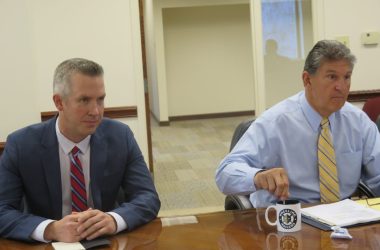By JAKE ZUCKERMAN
Charleston Gazette-Mail
CHARLESTON, W.Va. — The West Virginia Economic Development Committee put off a decision Friday on a bill intended to stimulate loans to companies that would bring internet services to underserved, rural areas.

The bill (SB 485) gives the state Economic Development Authority the green light to insure private loans issued to internet service providers who would not qualify for the loans without the backing from the state.
To qualify, those companies must submit a plan to deliver broadband services to the significant portions of rural West Virginia without internet access.
Under the legislation, the EDA would not be able to insure more than $10 million loaned to a single provider within one calendar year. The interest rates for the loans would be set July 1, and adjusted quarterly, not to exceed 1 percent within a calendar year.
The West Virginia Board of Treasury Investments would put $50 million into an auxiliary fund to secure the loans.
According to a 2016 report from the Federal Communications Commission, 500,000 West Virginians lack access to broadband internet. Of those without access, 48 percent live in rural areas. By comparison, 2 percent of U.S. citizens lack internet access, 39 percent of whom live in rural areas.
Sen Mike Romano, D-Harrison, expressed concerns with the EDA insuring loans in full that it might not have the expertise to properly analyze, and that he’d want to ensure such loans had a thorough vetting process.
Also, Romano said banks would always want the extra protection from the state, given the choice, and he’d like to see the banks assume some liability.
“I’d like to see the banks put some skin in the game,” he said.
Diana Stout, general counsel for state Treasurer John Perdue’s office, said she’s concerned about West Virginia using money from its general fund to insure a loan, given the current budget shortfall.
Stout said that if a company defaulted on one of the loans, the banks would not be able to seize assets beyond the collateral of the borrowers — leaving the state more exposed.
However, Brian Helmick, outside counsel for the EDA, spoke in favor of the program. While Helmick agreed with Romano that the banks might lack the specific expertise to properly evaluate the complex loans in broadband and telecommunications, he said the EDA has a strong portfolio and success rate.
Helmick also said he’s open to look over different regulations forcing the banks to assume some liability for the loans.
The committee did not name a specific date to revisit the issue.
See more from the Charleston Gazette-Mail





